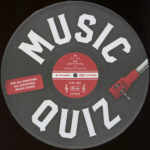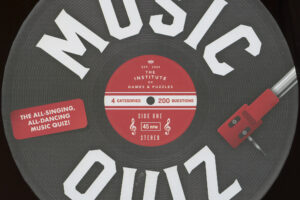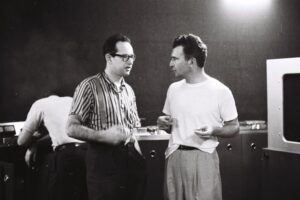Millions of words have been written about The Grateful Dead. Indeed, it’s hard to think of a band that is more of a lightning rod in a way that is to a great degree distinct from the music they played. That’s really something for a band that never had a big hit – nor seemed to particularly want one.
There are several reasons for this. Longevity is one reason. The GD – or “the boys,” as many fans call them – were around for a long time with relatively little shifting in personnel. The key players all remained until Jerry Garcia’s death in 1995. The exception is Pigpen (Ron McKernan) who died in 1973.
The band and the jam bands that followed distinguish themselves by embracing improvisation. Grateful Dead fans reacted to that by interacting with the band on a show by show basis as the improvisations on familiar tunes changed. Folks at a Rolling Stones or Elton John concert know exactly what to expect. They enjoy the predictability. Of course, there is absolutely nothing wrong with that. The Stones’ or John’s mood likely comes across in subtle ways, but the music is characterized by its perfection, which some see as a sign of imperfection.
At a more esoteric level, it shows that those acts are selling a commodity – a perfect rendition of what is on an album – as opposed to creative art. Grateful Dead and jazz concerts were and are designed to be creative. They come with the understanding that on some nights the results will not be that great. This approach led to a difficult to describe ethos: The fans were faith-based. Neither band nor fans knew what would happen at a given show. This created a culture that was – and remains — freewheeling, relaxed and accepting.
Saying that you are a Deadhead or a fan of the Grateful Dead said something about you. It also, by implication, said something about your lifestyle and politics. Think about it for a moment: Can you in any way characterize Rolling Stones fans? Who fans? Pink Floyd fans? I can’t. I have my opinion of the bands themselves, but can’t think of any particular quality or ethos of their fan bases.
In this video, I take a look at three things: The love that a collaborator – jazz saxophonist Branford Marsalis – has for the Deadheads, the long-term impact of the band’s policy of allowing fans to record concerts and Robert Hunter, whose lyrics gave The Grateful Dead a dimension that always will make them the greatest jam band.
One correction and an apology: It’s (painfully) obvious that I don’t script these videos. Towards the end, I mention David Dodd’s tremendous book “The Complete Annotated Grateful Dead Lyrics.” The apology is that I got his last name wrong. It’s available at Amazon and elsewhere. And here is a link to the interview with Branford Marsalis that I cite.

















Recent Comments